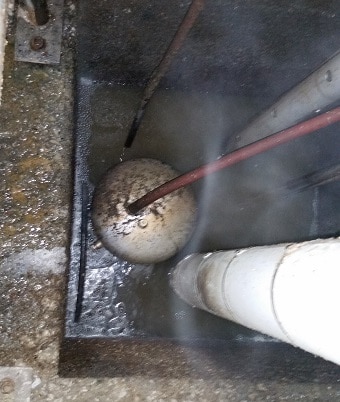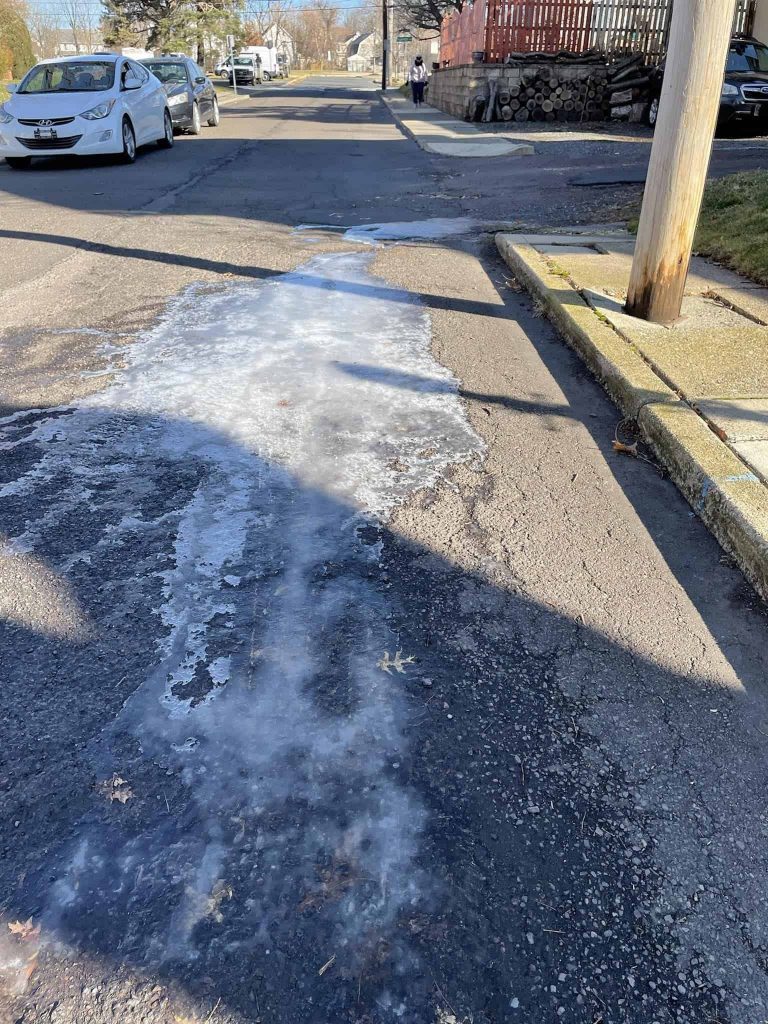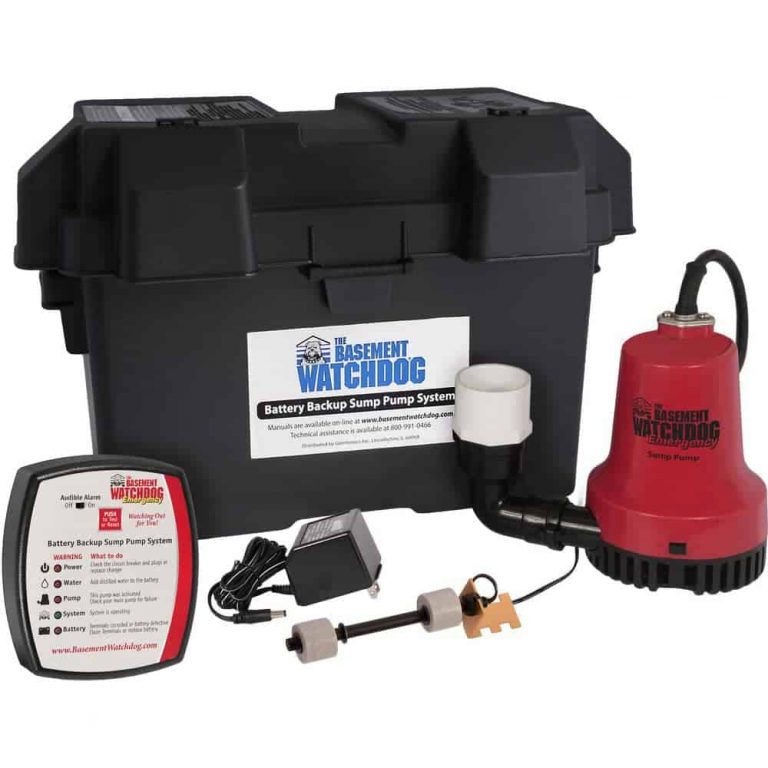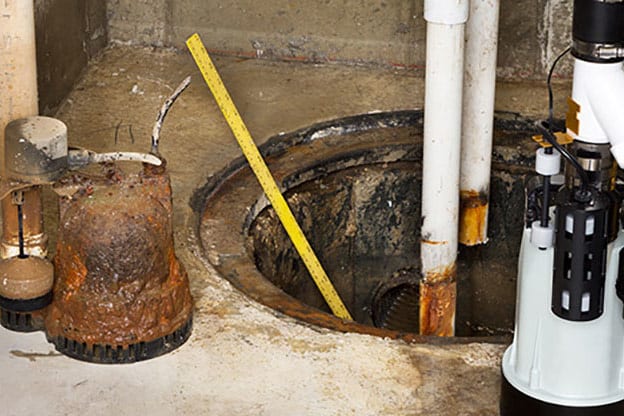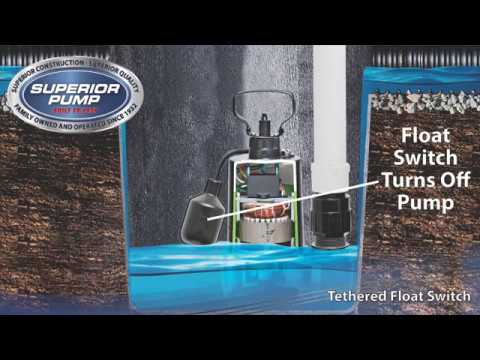Can a Sump Pump Pump Hot Water
A sump pump is typically used to remove water that has accumulated in a sump basin, usually located in the basement of a home. However, some homeowners may wonder if a sump pump can also be used to remove hot water.
While a sump pump can technically pump hot water, it is not recommended and could potentially damage the pump. Sump pumps are commonly used to pump out water that has accumulated in a sump pit.
But did you know that a sump pump can also be used to pump hot water? Yes, a sump pump can be used to pump hot water, but there are a few things you need to keep in mind. First, the temperature of the water should not exceed 140 degrees Fahrenheit.
Second, the pump must be rated for the desired flow rate. And third, the discharge hose must be able to handle the hot water.
If you’re looking to use a sump pump to pumps hot water, we recommend consulting with a professional before doing so. They will help you choose the right model and ensure it is installed properly.
6 Things Sump Pump Owners NEED to Know
Will Hot Water Damage a Sump Pump
Most homeowners are aware that their sump pump is an important part of their home’s plumbing system. However, many are not aware of the potential damage that can be caused by hot water.
Hot water can damage a sump pump by causing it to overheat and fail. In some cases, hot water can also cause the float switch to malfunction, which can lead to flooding. If you have a sump pump, it is important to avoid using hot water when operating it.
Hot Water in Sump Pump
If you have a sump pump in your basement, you know that one of the key components to its proper functioning is a reliable source of hot water. Without hot water, the pump will not be able to generate the necessary pressure to move water out of your basement and into the sewer system.
There are a few different ways that you can ensure that your sump pump always has access to hot water. One option is to connect your sump pump directly to your home’s hot water heater.
This is generally the simplest way to go, as it does not require any additional plumbing or pumps. However, it is important to make sure that your hot water heater is large enough to handle the additional demand from your sump pump.
If it isn’t, you may find yourself running out of hot water for other purposes while your sump pump is running. Another option is to install a dedicated line from your home’s main water supply into your basement specifically for use by your sump pump.
This line can be connected directly to your home’s existing plumbing, or you can install a small tankless water heater just for this purpose. Either way, this ensures that there is always plenty of hot water available for your sump pump without affecting other parts of your home’s plumbing system.
Water Heater Sump Pump
If you have a water heater in your home, then you may also have a sump pump. This type of pump is used to remove water that has accumulated in the sump pit.
The sump pit is usually located in the basement or crawl space. The sump pump is turned on when the water level in the sump pit reaches a certain level.
It then pumps the water out of the pit and into a drain or sewer system. Sump pumps can be either electric or battery-operated.
If you live in an area where flooding is common, then it’s important to have a sump pump. This type of pump can help to prevent your basement from flooding. It can also help to protect your belongings from damage caused by water.
Sump Pump is Hot And Not Working
If your sump pump is hot and not working, there are a few things you can check. First, make sure that the power supply to the pump is turned on.
Next, check the float switch to see if it is stuck in the “on” position. If so, simply unplug the switch and plug it back in.
Finally, check the impeller to see if it is damaged or clogged. If so, you will need to replace it.
Sump Pump Burning Smell
If you have a sump pump, it’s important to know what to do if you smell burning coming from it. First, check to see if the pump is overheating.
If the pump is hot to the touch, turn it off and unplug it from the outlet. Let it cool down for an hour before attempting to use it again.
If the pump isn’t overheating, the burning smell could be coming from something else such as an electrical problem. In this case, you’ll need to call an electrician to come and take a look at your sump pump.
Sump Pump Cost
A sump pump cost can vary depending on the brand, model, and features that you need. However, on average, a sump pump will cost between $150 and $300.
If you have a larger home or property, you may need to spend more on your sump pump. But, if you have a smaller home or live in an area with little flooding risk, you may be able to get by with a less expensive model. No matter what kind of sump pump you choose, it’s important to make sure that it’s properly installed so that it will work when you need it most.
Sump Pump Steaming
A sump pump steaming is a process that helps to remove water from your home. This can be caused by heavy rains or flooding.
When the water level gets too high, the pump will turn on and begin to work. The process of removing water can be slow, but it is very important to do this so your home does not become damaged.
Sump Pump Cavitation
If you have a sump pump, chances are you’ve experienced cavitation. Cavitation is the formation of vapor bubbles in a liquid, and it can cause serious damage to your sump pump.
Here’s what you need to know about cavitation and how to avoid it. What is cavitation? Cavitation is the formation of vapor bubbles in a liquid.
When these vapor bubbles collapse, they create a shock wave that can damage nearby objects. In a sump pump, cavitation can occur when the impeller blades hit pockets of air or when the water level gets too low.
How does cavitation damage a sump pump? Cavitation can damage a sump pump in two ways. First, the collapsing vapor bubbles can cause erosion of the impeller blades.
Over time, this erosion will weaken the blades and reduce the efficiency of the pump. Second, the shockwaves created by collapsing vapor bubbles can damage bearings and seals, leading to leaks. How do I avoid cavitation?

Credit: patch.com
Can You Use a Submersible Pump in Hot Water?
Yes, you can use a submersible pump in hot water. There are two main types of submersible pumps – those designed for clean water and those designed for dirty water. Clean water submersible pumps can typically handle water up to 140 degrees Fahrenheit, whiledirty water submersibles can usually handle waters up to 180 degrees Fahrenheit.
Does a Sump Pump Get Hot?
A sump pump is a device that is used to remove water that has accumulated in a sump pit. A sump pit is usually located in the basement of a home.
The water is typically pumped out of the pit and away from the home. Sump pumps are used to prevent basement flooding.
Sump pumps can be powered by electricity or by a battery. Battery-powered sump pumps are designed to work during power outages. Sump pumps do not get hot because they are not electrically powered.
What Can I Use Sump Pump Water For?
A sump pump is a device that is used to remove water that has accumulated in a water-collecting sump basin, typically found in the basement of homes. The water is typically pumped out of the basement and away from the home through a discharge pipe.
The water that is collected in the sump basin can be used for a variety of purposes, such as watering plants or flushing toilets. It can also be reused to wash cars or clean sidewalks. If you have an above-ground pool, the water can be pumped into it to raise the level of the pool.
Does Shower Water Go to Sump Pump?
No, shower water does not go to sump pump. Sump pumps are generally used to remove water that has accumulated in a sump basin, typically located in the basement of a home. Shower water is typically directed to a drain pipe, which carries the water away from the home.
Conclusion
A sump pump is typically used to pump water out of a basement or crawlspace that has been flooded. However, some sump pumps are designed to Pump Hot Water. This can be useful if you live in an area with hard water, as the hot water can help dissolve any minerals that have built up in your pipes.

